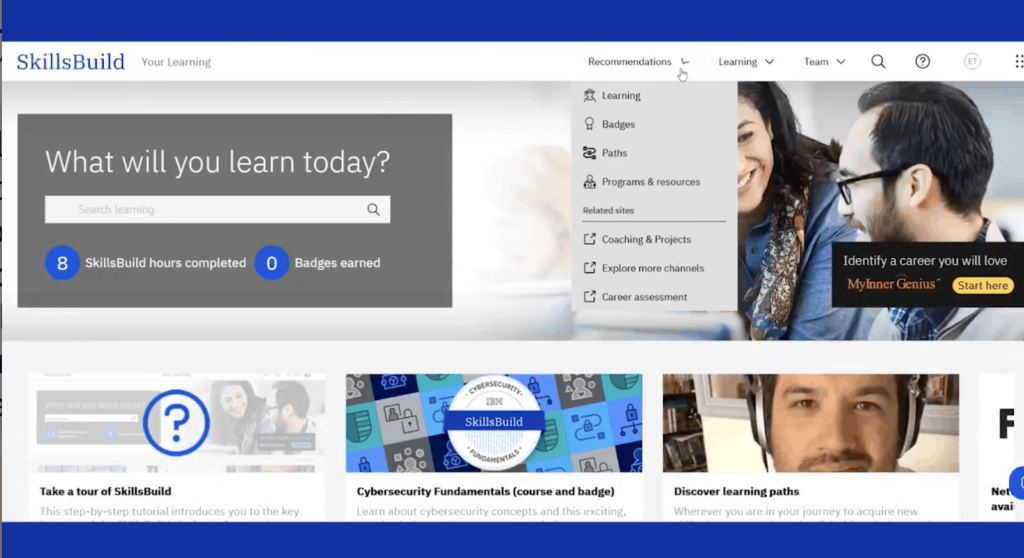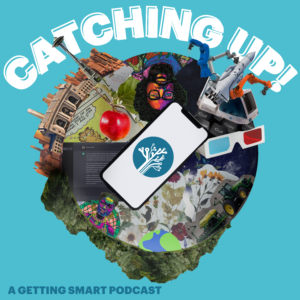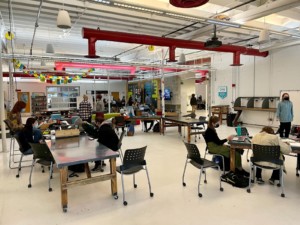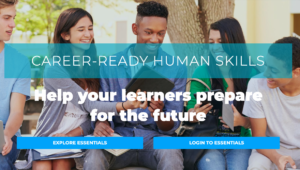The Rise of Skills-Based Hiring And What it Means for Education

The pandemic broke some old conventions and accelerated other trends. One convention that, for many tech employers, fell by the wayside was requiring degrees for every position. A trend that accelerated during the pandemic was skills-based hiring.
For decades, degree requirements have been added to more and more jobs. The degree ratchet increasingly screened out skilled applicants, expanded the opportunity gap, and made upward mobility more elusive.
For six years, former McKinsey partner Byron Auguste has been arguing that degrees are a bad proxy for critical skills. He founded Opportunity@Work to connect employers to “a huge, largely invisible talent pool of capable people” they call STARs – workers who are Skilled Through Alternative Routes, rather than through four-year degrees. STARs have skills picked up through community college, workforce training, boot camps, certificate programs, military service, or on-the-job learning, but are often overlooked by employers and are blocked by arbitrary degree requirements.
“Companies are missing out on skilled, diverse talent when they arbitrarily ‘require’ a four-year degree. It’s bad for workers and it’s bad for business. It doesn’t have to be this way,” says Auguste. “Instead of ‘screening out’ by pedigree, smart employers are increasing ‘screening in talent for performance and potential.”
While the pandemic accelerated inequity, it may have broken the ratchet of degree inflation and caused major employers to get serious about identifying job critical skills and “screen in” talent by verifying skills.
Job Boards Accelerate Skills-Based Hiring
In March, LinkedIn launched Skills Path, a skills-based hiring initiative aiming to connect employers and job seekers by identifying the core skills for open roles and then matching qualified candidates to those roles. Skills Path combines learning courses and skills assessments to match nontraditional candidates with job interviews. More than a dozen companies are already participating in the pilot program
“We believe that by taking a skills-based approach to opportunity we can remove barriers for candidates that might not have the degree or network, while also increasing the size of employer talent pools, often letting them pinpoint quality applicants for hard-to-fill roles,” said LinkedIn VP of Product Hari Srinivasan.
Other leading job sites including Indeed and Ziprecruiter have also grown more sophisticated about skills matching.
Building and Credentialing Skills
Putting America Back to Work, a new fund announced today, seeks to put 100,000 Americans into good tech and healthcare jobs. “Our goal is to catalyze more pathways to good jobs that provide learners a real-world experience and relevant job skills aligned to the evolving labor market,” said fund investor Ben Walton. “The apprenticeship model encourages companies to prioritize hiring based on skills and competencies which, in turn, increases the opportunity for economic mobility.”
Two years ago, IBM, a leader in digital credentials launched the SkillsBuild initiative to connect learners to job pathways. In June, IBM announced a new collaboration with 30 global organizations focused on helping underserved populations improve their skills and employability. They hope to upskill a half a million people by the end of the year.
In September, Western Governors University, Walmart, and 40 partners launched the Open Skills Network to accelerate a shift to skills-based education and hiring by establishing a network of open skills libraries and skills data.
The International Society for Technology in Education (ISTE) launched its own skills-focused initiative called Skillrise which features courses, conversations, and useful frameworks about upskilling the workforce.
Marketing giant Hubspot runs an academy that has certified over 200,000 professionals advancing their careers with skill credentials.
Amazon, Google, Microsoft, Salesforce, Verizon, JPMorgan, and Accenture created new programs to upskill their workforces and extend onramps to others. All of these initiatives offer modular learning experiences back mapped from job competencies with credentials that capture and communicate learning. These corporate giants have created a parallel postsecondary universe that complements or could even replace traditional higher education for many learners.
Signaling Skills
Skills-based hiring focuses not only on priority technical skills but foundational and transferable skills. Conducted with Kansas City partners, the DeBruce Foundation sponsored the Essential Skills Report which outlined six competencies most important to enter and succeed in the world of work:
- Communication: interact with clients, coworkers, and collaborators;
- Collaboration: teamwork that leverages skills of colleagues;
- Critical thinking: problems solving that synthesizes information;
- Interpersonal skills: treating others with empathy, building trusting relationships;
- Proactivity: taking initiative, acting on opportunities to add value; and
- Executive Function: manage work independently, deal with ambiguity.
The report concluded, “Because these skills are valuable across sectors and durable over time, it is important that education institutions, out-of-school experience providers, and employers invest in the development of Essential Skills.”
A number of Kansas City area high school staff has been studying the report looking for ways to more intentionally develop Essential Skills in conjunction with real-world learning experiences including internships and client projects.
What Skills-Based Hiring Means for Education
Discipline-based courses have been the standardized measure for units of secondary and postsecondary learning for 130 years. But it’s becoming widely appreciated that course credits and degrees are weak proxies for developed human capability. For 20 years, around the edges, there has been steady progress moving away from seat time to competency-based learning–a combination of individual path and pace, the time and support to master competencies, and credentials that signal new capabilities.
The surge in skills-based hiring means high schools and postsecondary education institutions should design experiences around priority skills, assess those skills and help learners community those skills. Where courses remain the organizing construct, they should be a series of experiences aiming at a bundle of competencies.
Skills should be demonstrated in authentic ways and can be captured and communicated in digital credentials that, over time, will replace course lists and grades as the priority reporting mechanism.
High school and postsecondary learners should have the opportunity to build profiles (a wallet of digital credentials) and portfolios (artifacts representing personal bests) that communicate capabilities.
Schools have an expanding opportunity to incorporate some of the corporate skill-building and credentialing programs into their courses of study.
The work starts with community conversations about new learning priorities–particularly skills key to entering and succeeding in the new economy. It continues with learners having multiple opportunities to develop and demonstrate new skills. And it ends with learners hired based on what they know and can do.
For more, see:
- Why Students Should Co-author Learning
- Digital Credentials: A Better Way to Capture and Communicate Learning
- Getting Smart Podcast | 5 Lessons on Impact Leadership
Stay in-the-know with innovations in learning by signing up for the weekly Smart Update.
This post was originally published on Forbes.







Landious Travel
I agree with your point of view that “Companies are missing out on skilled, diverse talent when they arbitrarily ‘require’ a four-year degree. It’s bad for workers and it’s bad for business. It doesn’t have to be this way,” says Auguste. “Instead of ‘screening out’ by pedigree, smart employers are increasing ‘screening in talent for performance and potential.”
Thanks so much for the information you give in this valuable article!
TechyKids Canada
Very informative post and would help many to understand the importance of developing skills. The way how technology is evolving, coding skills can help kids to strive in this digital era. Thank for sharing this post, it was a good read!